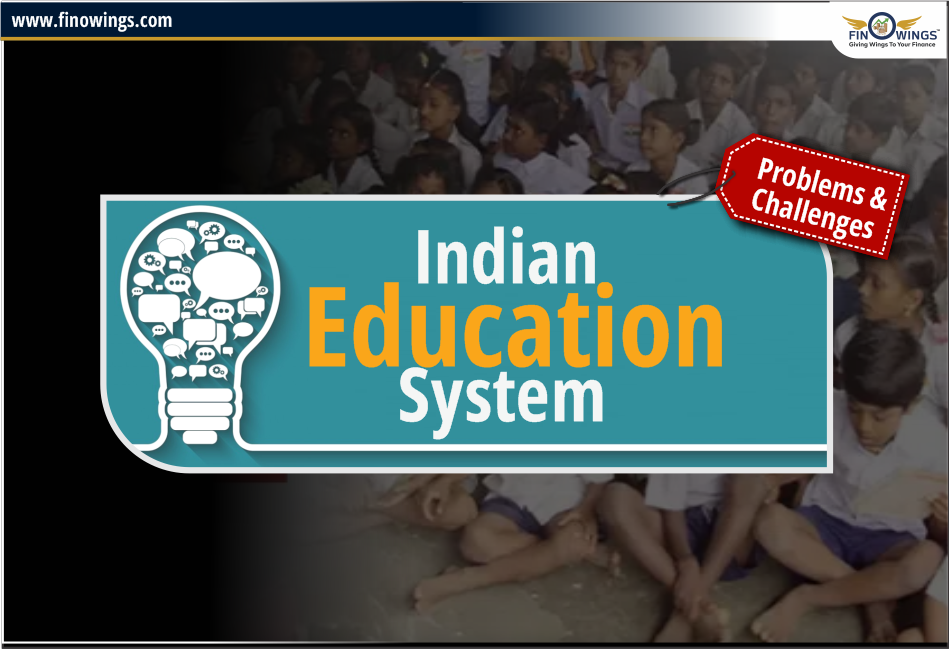Home >> Blog >> Indian Education System: Problems & Challenges Explained
Indian Education System: Problems & Challenges Explained

Table of Contents
Introduction to the Education System's Flaws
India's population exceeds 1.4 billion, yet only 58,000 individuals are millionaires who pay taxes. This represents just 4% of the population. Have you ever wondered why you aren't part of this 4%? What is missing in our system that prevents us from becoming wealthy? Is our education system failing to elevate our children to higher levels?
This blog aims to expose the sensitive issues within the Indian education system. We will explore why the majority of our society remains middle class or poor and identify who is responsible for this situation. Is it us, our society, or our education system?
The Real-Life Story of Mahesh
To understand the problem, let's delve into a real-life story from my neighborhood. Mahesh was an intelligent boy who excelled in his studies from a young age. His family had high hopes that he would secure a good job and bring honor to the family. However, Mahesh never aimed for a job; he studied for the love of learning and delved deeply into concepts.
When Mahesh pursued higher education in science, he encountered a significant problem. His professors advised him not to delve too deeply into subjects, suggesting that surface-level knowledge was sufficient to pass exams and secure a placement. This advice troubled Mahesh, as it stifled his creativity and passion for learning. Eventually, he dropped out of college, disillusioned by an education system that prioritized job training over genuine learning.
The Historical Context of India's Education System
To understand why our education system is flawed, we need to go back in time. During British rule in India, the English Education Act of 1835 was implemented. This act mandated the teaching of modern science in English. Institutions like the Calcutta Medical College and Elphinstone College in Mumbai were established. However, the real motive behind these colleges was not to educate Indians but to bridge the communication gap between the lower classes and the government.
The British aimed to create a class of educated individuals who could serve as clerks and other secondary positions, reducing their costs. This system ensured that the lower classes remained uneducated while the middle and upper classes received limited education focused on job training. This model has persisted, and our current education system still primarily aims to secure jobs rather than foster creativity and critical thinking.
The Consequences of a Job-Oriented Education System
Mahesh's story highlights the shortcomings of a job-oriented education system. After dropping out, he faced social ridicule and struggled with low self-esteem. His friends who secured jobs were celebrated, while he felt like a failure. This societal pressure and lack of practical skills training contributed to his struggles.
Our education system's focus on job placement rather than skill development means that even those who secure jobs rarely become wealthy. Wealthy individuals often possess unique skills, knowledge, and creativity that our current system fails to nurture. The majority remain middle class or lower class because the education system does not equip them with the necessary tools for success.
The Need for a Practical and Creative Education System
To address these issues, we need a significant overhaul of our education system. Practical skills and creativity should be prioritized over rote learning and job training. Students should be encouraged to think critically, explore deeply, and develop unique skills. This would enable them to innovate and create opportunities rather than merely seeking employment.
For instance, consider joining Finowings Academy, which offers practical stock market training and mentorship. Such institutions focus on skill development and practical knowledge, preparing students for real-world challenges.
Mahesh's Journey: A Lesson in Resilience
Despite the challenges, Mahesh's journey is not over. He continues to search for his passion and develop his skills. His story teaches us the importance of resilience and the need to challenge societal norms. While he may not have achieved his dreams yet, his determination and willingness to think differently set him apart.
For those interested in stock market investment and learning, consider following Mukul Agrawal on YouTube. His channel provides valuable insights into stock market trends and investment strategies.
Conclusion
In conclusion, the Indian education system's focus on job training rather than skill development and creativity is a significant barrier to wealth creation. To foster a society of innovative and successful individuals, we must prioritize practical skills, critical thinking, and creativity in our education system.
Let's work towards an education system that empowers students to think differently, innovate, and create opportunities. Only then can we hope to see more individuals breaking free from the constraints of the middle class and achieving true success.
Want to start Your Journey in stock market trading and investment? Join our Stock Market Class to become beginner to expert trader! We cover everything from the basics of trading to advanced strategies for picking stocks. Plus, we're offering a special discount for women and students. Don't miss out - enroll now and kickstart your path to success in the stock market!
Open a world of Stock Market by Opening a Demat Account with your favourite Broking firm & Get a trading Strategy worth Rs.15,000!
Author
Frequently Asked Questions
The Indian education system focuses more on rote learning and job training rather than fostering creativity, critical thinking, and practical skills. This approach limits students' potential for innovation and wealth creation, keeping the majority in the middle or lower economic classes.
The current system has its roots in British colonial rule, specifically the English Education Act of 1835. This act aimed to produce a class of educated individuals to serve as clerks and other secondary positions, rather than fostering comprehensive education. This job-oriented model has persisted, prioritizing employment over deep learning and skill development.
Mahesh's story shows how the education system stifles creativity and genuine learning by prioritizing surface-level knowledge and job placement. Despite his intelligence and passion for learning, Mahesh became disillusioned and dropped out, struggling with societal pressures and a lack of practical skills training.
A job-oriented education system leads to individuals who may secure employment but lack the practical skills, creativity, and critical thinking necessary for significant financial success and innovation. This results in a society where the majority remain in lower economic classes, unable to break free from financial constraints.
The education system needs a significant overhaul to prioritize practical skills, creativity, and critical thinking. Encouraging deep exploration of subjects, fostering unique skills, and providing practical knowledge will help students innovate and create opportunities, leading to greater financial success and breaking free from middle-class constraints. Institutions like Finowings Academy, which offer practical training and mentorship, exemplify the kind of educational approach needed for real-world challenges.




















